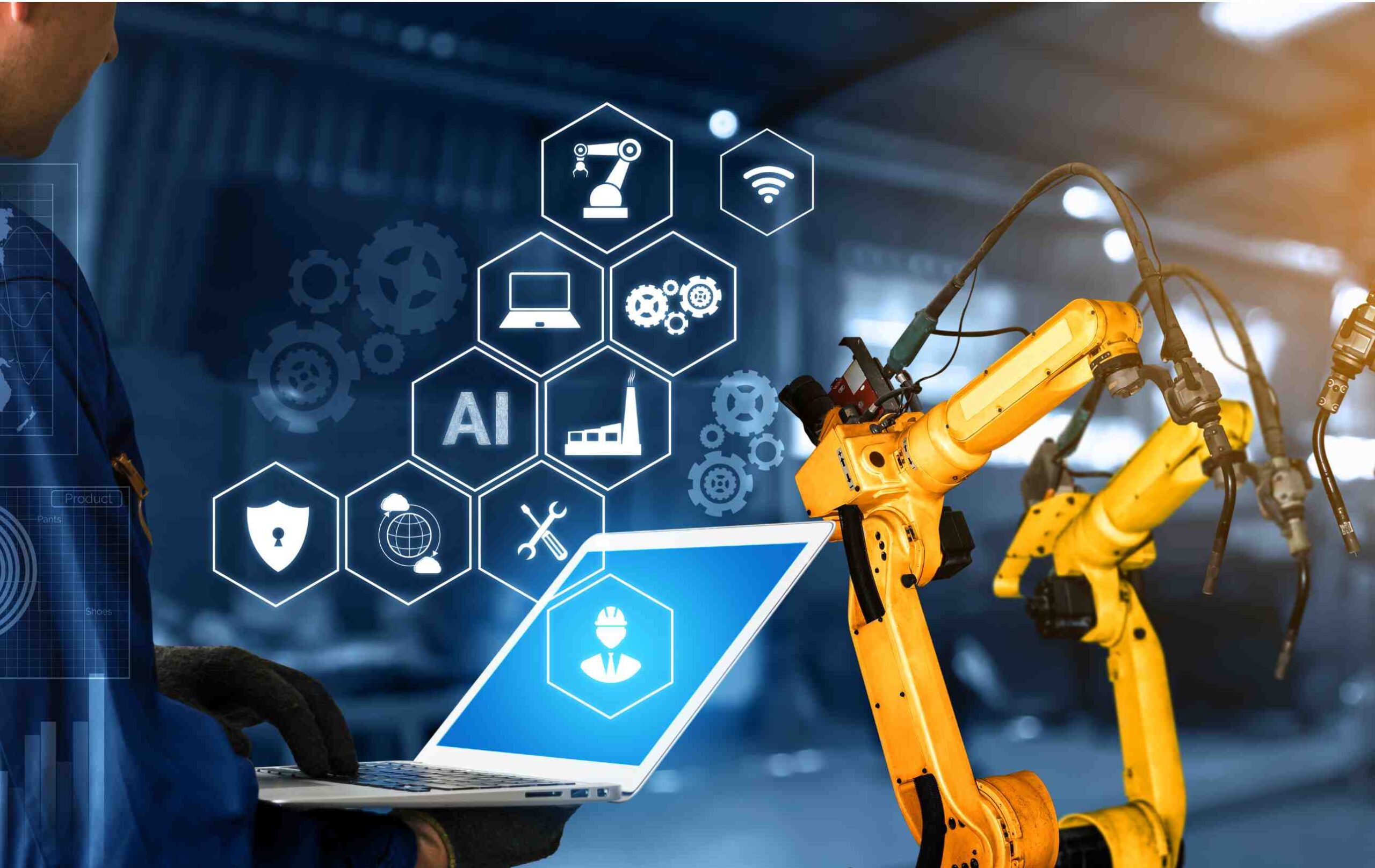Industrial Robotics & Automation
Master the integration and programming of industrial robots for modern manufacturing environments.
Course Overview
Our Industrial Robotics & Automation course provides comprehensive training in the programming, integration, and maintenance of robotic systems used in modern manufacturing environments. This intensive program is designed for engineers, technicians, and professionals seeking to advance their career in industrial automation.
- 10-week intensive program with hands-on robotics labs
- Training on industry-standard robot systems from ABB, KUKA, and Fanuc
- Comprehensive coverage of vision systems and end-effector technologies
- Real-world integration projects with production line simulation

Why Choose This Course
Multi-Vendor Expertise
Gain hands-on experience programming and operating robots from leading manufacturers including ABB, KUKA, Fanuc, and Universal Robots.
End-to-End Knowledge
Learn complete robotics implementation from mechanical integration and programming to vision systems, safety, and maintenance procedures.
Real-World Applications
Work on industry-specific applications including pick-and-place, machine tending, palletizing, welding, and collaborative robot implementations.
Course Curriculum
Module 1: Introduction to Industrial Robotics
- History and evolution of industrial robotics
- Types of industrial robots and their applications
- Robot anatomy and mechanical components
- Degrees of freedom and work envelopes
- Robot control systems and architectures
Module 2: Robot Kinematics & Programming Fundamentals
- Forward and inverse kinematics
- Joint and Cartesian coordinate systems
- Tool and work object frames
- Motion types and path planning
- Basic programming concepts and structures
Module 3: Robot Programming - ABB Robots
- ABB RobotStudio software environment
- RAPID programming language
- Program structures and routines
- I/O handling and error recovery
- Simulation and offline programming
Module 4: Robot Programming - KUKA Robots
- KUKA WorkVisual software environment
- KRL programming language
- KUKA SmartPad programming
- Program flow and logic control
- System integration and safety configurations
Module 5: Robot Programming - Fanuc Robots
- Fanuc Roboguide software environment
- TP programming language
- iPendant programming and operation
- Register and position register usage
- Macros and advanced programming techniques
Module 6: Vision Systems & Sensing
- Machine vision fundamentals
- 2D and 3D vision technologies
- Lighting and imaging techniques
- Vision system integration with robots
- Force and torque sensing applications
Module 7: End-Effectors & Tool Integration
- Gripper types and selection criteria
- Pneumatic and electric end-effectors
- Tool changing systems
- Welding, painting, and specialized tools
- End-effector control and programming
Module 8: Safety Standards & Risk Assessment
- ISO standards for robot safety
- Risk assessment methodologies
- Safety guarding and perimeter devices
- Emergency stops and safety circuits
- Safety monitoring and control systems
Module 9: Collaborative Robotics
- Collaborative vs. traditional industrial robots
- Universal Robots programming and applications
- Power and force limiting technologies
- Collaborative safety standards and risk assessment
- Human-robot collaboration workflows
Module 10: Integration Project
- Robotic cell design and simulation
- PLC-robot integration
- Complete automation solution implementation
- Testing, troubleshooting, and optimization
- Project documentation and presentation
Meet Your Instructors
Markovian Belgravic
Robotics Integration Specialist
With over 12 years of experience in industrial robotics, Markovian has led robotics integration projects in automotive and electronics manufacturing across Europe and the Middle East.
ABB Certified, KUKA Certified, Fanuc Certified
Despatria Illyritania
Vision Systems Expert
Despatria specializes in machine vision and sensing technologies for robotics applications, with extensive experience implementing quality control and part identification systems.
Cognex Certified, Keyence Certified
Industrial Robotics Training in Cyprus
As Cyprus continues its journey toward industrial modernization, the integration of robotic automation represents a pivotal opportunity for manufacturing companies seeking enhanced productivity, consistent quality, and improved workplace safety. Our Industrial Robotics & Automation course stands at the forefront of this transformation, providing comprehensive training tailored to the specific needs of Cyprus's evolving industrial landscape.
The strategic position of Cyprus as a gateway between Europe, Asia, and Africa creates unique opportunities for manufacturers who can leverage advanced automation technologies to compete effectively in global markets. Companies across various sectors—from food processing and pharmaceuticals to electronics assembly and logistics—are increasingly recognizing that robotic automation is no longer a luxury but a necessity for maintaining competitive advantage in today's manufacturing environment.
What distinguishes our robotics training program is its multi-vendor approach. Rather than focusing on a single robot manufacturer, we provide hands-on experience with systems from ABB, KUKA, Fanuc, and Universal Robots—the predominant platforms used across Cyprus and the broader Mediterranean region. This comprehensive exposure ensures that graduates can confidently work with whatever robotic systems they encounter in their professional careers.
The curriculum has been carefully structured to progress from fundamental concepts to advanced applications, with a strong emphasis on practical, hands-on learning. Participants begin with robot kinematics and basic programming before advancing to sophisticated topics such as vision system integration, end-effector selection and programming, and safety system design. Each module builds upon the previous one, creating a cohesive learning journey that mirrors the actual implementation process for industrial robotics projects.
Beyond technical programming skills, our course addresses the critical integration aspects that determine the success of robotics implementations. As many Cypriot manufacturers operate with a mix of legacy and modern equipment, there's a significant need for professionals who can seamlessly integrate robotic systems with existing production infrastructure. Our modules on PLC-robot integration and production line design provide the knowledge necessary for creating these unified solutions.
The career prospects for robotics specialists in Cyprus are exceptionally promising. As more companies embrace Industry 4.0 principles, the demand for skilled professionals capable of implementing and maintaining robotic systems continues to grow. Graduates from our program have secured positions with leading employers across the island, contributing to the nation's industrial advancement while enjoying rewarding career paths with competitive compensation packages.